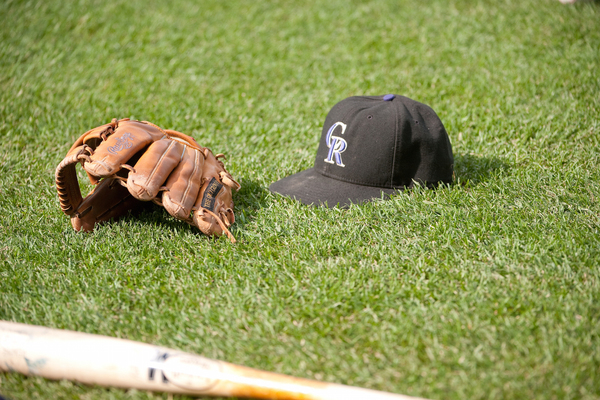The Local newsletter is your free, daily guide to life in Colorado. For locals, by locals.
As the Brock Osweiler Era continues its indefinite run as the only relevant story in Colorado sports, local fans might be forgiven for ignoring Major League Baseball’s winter meetings this week. After all, our representative to the annual gathering, the Rockies, crept through the proceedings as if they don’t really belong there.
There’s increasing evidence that they really don’t. Because while the Dodgers and Giants were busy reloading for another season aimed directly at a World Series title and the Padres are at least making a lot of noise about trying to get better faster, the Diamondbacks announced their presence with authority with a blockbuster trade and the splashiest (and most surprising) free agent signing this fall.

All these maneuverings mean the already outmanned Rockies will likely enter spring training with an even bigger hole to climb out of as they try to reverse their dismal course of the past five years. Thus far, the franchise that needs just about everything other than a third baseman has added two so-so relievers and a guy, Mark Reynolds, who might hit 25 homers—while striking out about every third at bat and playing statuesque defense at first base.
To be fair, the Rockies still have at least one massive trade chip in Carlos Gonzalez, who could bring back more than a few legitimate players or prospects if they decide to move him. Players such as Corey Dickerson, Charlie Blackmon, or DJ LeMahieu could also net some legitimate arms. The problem is, everybody needs pitching; the Rockies just need far more of it. But with a handful of top free agent outfielders still unsigned across the league, Rockies GM Jeff Bridich appears to be waiting out the market to maximize his returns, an understandable strategy that will hopefully turn out to be a savvy one.
But when Bridich downplays his NL West competitors’ moves, and he claims—despite mountains of evidence to the contrary—that “this team can reasonably compete,” he sounds like a guy who’s been hamstrung by his bosses into parroting an unsupportable party line.
No one who follows baseball thinks the Rockies are close to sniffing .500, let alone contending for a playoff spot. And anyone who follows baseball knows that the Rockies are mired in one of MLB’s most hopeless situations: run by indifferent owners and surrounded by divisional opponents with far more money and an immeasurably greater desire to win, now and in the future.
Since the Rockies’ last playoff appearance in 2009, it’s become crystal clear that owner Dick Monfort’s only identifiable goal is to continue luring fans to the ballpark. Thanks to its gem of a stadium and Coloradans’ love of the outdoors and of baseball in general, mission accomplished.
But as we head into a sixth-straight losing campaign—unless something changes radically, the main question in 2016 will be whether the Rockies will lose 90, 95, or 100 games—we’ve reached a point where even the diehards might finally stop showing up. (You could easily argue that they should have started making other plans two or three years ago.) Because when Bridich says, “We’ll let the fans do the speaking” about the team’s appeal, he and his bosses will eventually get their wish. As of now, it’s looking like one they’ll surely regret.
Follow 5280 editor-at-large Luc Hatlestad on Twitter at @LucHatlestad.








